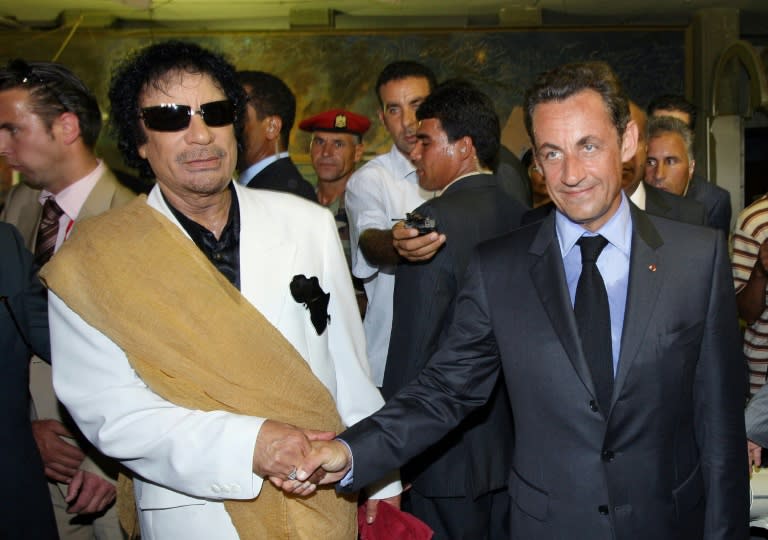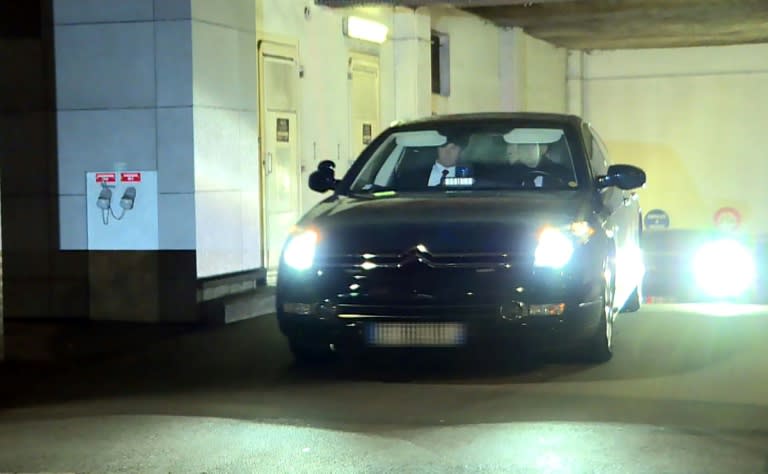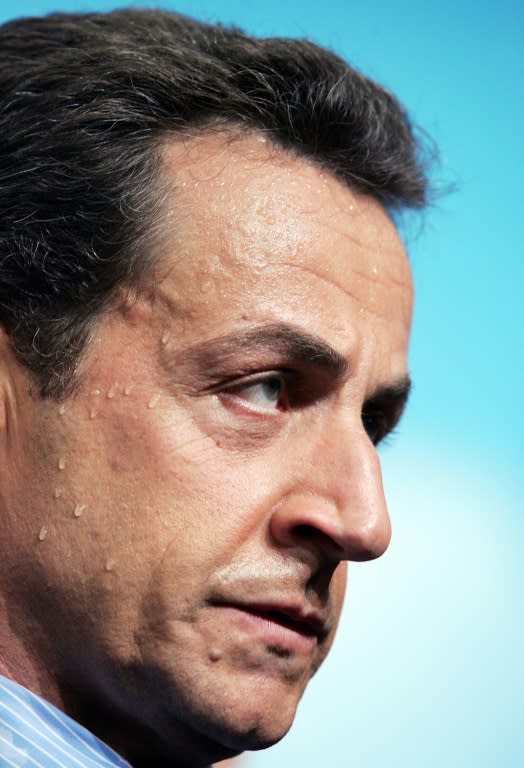Sarkozy released after two days of grilling in 'Kadhafi millions' probe
Former French president Nicolas Sarkozy was released from custody Wednesday evening after two days of questioning over allegations that the late Libyan dictator Moamer Kadhafi helped finance his 2007 election campaign. "Nicolas Sarkozy is no longer in custody," a source close to the case told AFP. The source did not say whether the 63-year-old ex-leader had been cleared of suspicion or still faces possible charges over claims that he accepted millions of euros from Kadhafi, delivered in suitcases stuffed with bills. Sarkozy was first taken into custody on Tuesday morning and grilled for 15 hours before being allowed to leave for the night before the questioning resumed on Wednesday morning. His lawyers refused to comment throughout. Investigators probing the most sensational in a string of allegations that have seriously tarnished Sarkozy's reputation and tripped up his attempt at a political comeback are looking into possible misuse of public funds, corruption and illegal campaign financing. Since 2013, investigators have been looking into claims by several figures in Kadhafi's ousted regime, including his son Seif al-Islam, that Sarkozy was on the take in 2007 from the man he helped topple four years later. The case is France's most explosive political financing scandal. Since being voted out of office after one term in 2012 Sarkozy has already been charged in two other cases. One relates to a system of fake invoices devised to mask overspending on his failed 2012 election campaign, the other is for alleged influence peddling involving a judge. His right-wing Republicans party has so far given Sarkozy unanimous backing, but there are signs of unease among some senior conservatives who fear the fallout of the latest episode involving their former leader. Brice Hortefeux, a Sarkozy ally who was a top minister during his presidency, was also questioned Tuesday. "Mr Hortefeux again assured that there was no financing from Libya or any foreign country," his lawyer Jean-Yves Dupeux told AFP. - Suitcases of cash? - In 2011, as NATO-backed forces were driving Kadhafi out of power, Seif al-Islam told the Euronews network that "Sarkozy must first give back the money he took from Libya to finance his electoral campaign." Sarkozy has dismissed the allegations as the rantings of vindictive Libyan regime members who were furious over France's military intervention in Libya that helped end Kadhafi's 41-year rule and led to his death. The former French leader has also sued the investigative website Mediapart, which has led media coverage of the Libyan allegations since 2012 and published a document allegedly signed by Libya's intelligence chief showing that Kadhafi had agreed to fund Sarkozy to the tune of 50 million euros ($62 million). The case drew heightened scrutiny in November 2016 when a Franco-Lebanese businessman admitted delivering three cash-stuffed suitcases from the Libyan leader in 2006 and 2007 as contributions towards Sarkozy's first presidential run. In an interview, again with Mediapart, Ziad Takieddine claimed he provided 1.5 to 2 million euros in 200-euro and 500-euro notes each time and was given the money by Kadhafi's military intelligence chief Abdallah Senussi. The legal investigation is looking into these allegations, as well as a 500,000-euro foreign cash transfer to Sarkozy ally Claude Gueant, and the sale of a luxury villa in 2009 in the south of France to a Libyan investment fund for an allegedly inflated price. - Legal pressures - It is not the first time Sarkozy has been brought in for questioning. In July 2014 he became the first former French president to enter police custody over a separate inquiry into claims that he tried to interfere in one of several investigations that have dogged him since leaving office. Investigating magistrates have recommended meanwhile that he stand trial for illegal campaign financing over his failed 2012 re-election bid. The prosecution claims Sarkozy spent nearly double the legal limit of 22.5 million euros ($24 million) on that campaign, using false billing from a public relations firm called Bygmalion. Sarkozy claims he knew nothing about the fraudulent practices. Sarkozy failed in his comeback bid for the presidency in November 2016 and has stepped back from frontline politics since then, but he still holds considerable influence with the Republicans party. burs-cb/pvh






